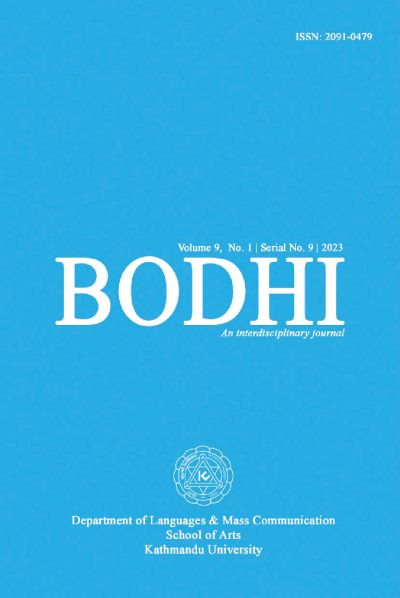The Role of Bengali Women in the 1971 Non-Cooperation Movement Against the Government of Pakistan
DOI:
https://doi.org/10.3126/bodhi.v9i1.61856Keywords:
Movement, independence, government, women, people, freedom, assemblyAbstract
The Lahore resolution of 1940 and the bi-nationalism of Muhammad Ali Jinnah were considered as the cornerstones of the Pakistan movement. The demand for partition of India on the basis of the Lahore resolution sparked a firestorm among the Muslim community. India split seven years after the Lahore resolution was tabled. But the partition of the country in 1947 and the creation of Pakistan could not provide a state solution to the question of the Bengali nation. As a result, for twenty-three long years, the Bengalis were subjected to various forms of discrimination by the military rule of West Pakistan. Eventually they started a movement demanding the elimination of this inequality and the establishment of democracy. Pakistan’s military government was forced to hold its first national elections in 1970. The popular East Pakistan Awami League, led by Bangabandhu, won a single majority in the elections. But even though the Awami League gained a majority, the military government did not hand over power to the majority party. As the leader of the majority party, Bangabandhu called for a non-cooperation movement. Men as well as women participated in the movement and played a vital role in gaining independence in the country. So, the present article highlights the participation of Bengali women in the non-cooperation movement and their role in the movement.
Downloads
Downloads
Published
How to Cite
Issue
Section
License
© Department of Languages and Mass Communication, School of Arts, Kathmandu University, Nepal




